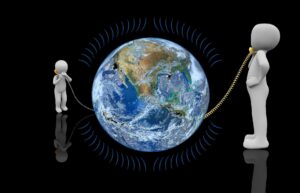Protect yourself by being “heads up” about interaction online, over the phone, etc. Criminal scammers use techniques to affect your emotional side and get you to give them your personal information.
- Who is it that is calling? Ask for a callback number but don’t call back.
- The caller may try to use an impersonation technique to imitate customer service from a major company or financial institution.
- If you are told we cannot receive calls, hang up.
- Microsoft never calls randomly to tell people that their computer is infecting their neighbors
- The IRS never calls to tell you you are late on your taxes
- The Social Security Administration NEVER calls without you calling them first
- If you bank with Chase, and the caller says they are from Bank of America, hang up. Banks you do not use have no reason to call you. Also most banks today will not be calling you.
- PayPal emails ALWAYS use your real name in emails, not a generic Dear customer. They also direct you to log in and get the information ourself. Here’s Paypal’s advice
- Never pay over the phone. Unless you made the call directly. Companies that appear to be legit will never ask you to provide payment information, or ID’s for verification.
- It’s OK to hang-up on callers you don’t know. Only receiving calls you expect is the safest way to prevent getting taken. Only taking calls you first initiated is also safe.
- Staying on the line to convince the caller you don’t want them to call is not a good idea. Don’t give the caller time to convince you to give them your ID or credit card information
The US Government has a website of known scams. Become familiar with it. Be “heads up”. Protect yourself by being informed.

Leave a Reply
You must be logged in to post a comment.